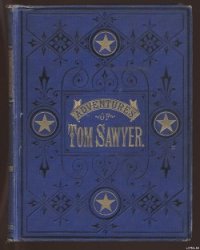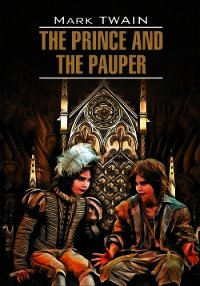Английский язык с Марком Твеном. Принц и нищий (Mark Twain. The Prince and the Pauper) - Twain Mark (читать хорошую книгу полностью .txt) 📗
knot [nOt], occur [?`k?:], campaigner [k?m`pe?n?]
WHEN Hendon's term of service in the stocks was finished, he was released and ordered to quit the region and come back no more. His sword was restored to him, and also his mule and his donkey. He mounted and rode off, followed by the king, the crowd opening with quiet respectfulness to let them pass, and then dispersing when they were gone.
Hendon was soon absorbed in thought. There were questions of high import to be answered. What should he do? Whither should he go? Powerful help must be found somewhere, or he must relinquish his inheritance and remain under the imputation of being an impostor besides. Where could he hope to find this powerful help? Where, indeed! It was a knotty question. By and by a thought occurred to him which pointed to a possibility — the slenderest of slender possibilities, certainly, but still worth considering, for lack of any other that promised anything at all. He remembered what old Andrews had said about the young king's goodness and his generous championship of the wronged and unfortunate. Why not go and try to get speech of him and beg for justice? Ah, yes, but could so fantastic a pauper get admission to the august presence of a monarch? Never mind — let that matter take care of itself; it was a bridge that would not need to be crossed till he should come to it. He was an old campaigner, and used to inventing shifts and expedients; no doubt he would be able to find a way. Yes, he would strike for the capital. Maybe his father's old friend, Sir Humphrey Marlow, would help him — 'good old Sir Humphrey, Head Lieutenant of the late king's kitchen, or stables, or something' — Miles could not remember just what or which. Now that he had something to turn his energies to, a distinctly defined object to accomplish, the fog of humiliation and depression that had settled down upon his spirits lifted and blew away, and he raised his head and looked about him. He was surprised to see how far he had come; the village was away behind him. The king was jogging along in his wake, with his head bowed; for he, too, was deep in plans and thinkings. A sorrowful misgiving clouded Hendon's newborn cheerfulness; would the boy be willing to go again to a city where, during all his brief life, he had never known anything but ill usage and pinching want? But the question must be asked; it could not be avoided; so Hendon reined up, and called out:
'I had forgotten to inquire whither we are bound. Thy commands, my liege?'
'To London!'
Hendon moved on again, mightily contented with the answer — but astonished at it, too.
The whole journey was made (целое путешествие было совершено) without an adventure of importance (без единого приключения какой-либо важности). But it ended with one (но оно закончилось одним = приключением). About ten o'clock on the night of the night of the 19th of February (около 10 часов вечером в ночь на 19 февраля), they stepped upon London Bridge (они ступили на Лондонский мост), in the midst of a writhing, struggling jam (посреди извивающейся, борющейся толчеи) of howling and hurrahing people (воющих и гуляющих людей), whose beer-jolly faces (чьи веселые от пива лица) stood out strongly (выделялись сильно; to stand out — выделяться: «стоять наружу») in the glare from manifold torches (в отблесках многочисленных факелов) — and at that instant (и в это мгновение) the decaying head of some former duke or other grandee (разлагающаяся голова какого-то бывшего герцога или другого вельможи) tumbled down between them (упала вниз между ними), striking Hendon on the elbow (ударив Хендона по локтю) and then bounding off (и затем отскочив дальше) among the hurrying confusion of feet (среди поспешного замешательства ног; foot — нога, ступня). So evanescent and unstable are men's works in this world (так мимолетны и преходящи людские дела в сем мире)! — the late good king is but three weeks dead (покойный добрый король лишь три недели мертв) and three days in his grave (и три дня в своей могиле), and already the adornments (а уже украшения) which he took such pains to select (которые он взял столько усилий, чтобы выбрать = выбор которых стоил ему столько усилий) from prominent people (от выдающихся людей) for his noble bridge (для своего благородного моста) are falling (падают). A citizen stumbled over that head (один горожанин споткнулся об эту голову), and drove his own head (и вбил свою собственную голову = врезался головой; to drive — вбить) into the back of somebody in front of him (в спину кого-то впереди него), who turned and knocked down (который обернулся и сбил с ног) the first person that came handy (первого человека, который подвернулся под руку: «пришел удобным»), and was promptly laid out himself (и был быстро уложен сам; to lay out — сбить с ног, вывести из строя) by that person's friend (другом этого человека). It was the right ripe time (это было точно зрелое = подходящее время) for a free fight (для свободной драки), for the festivities of the morrow (так как празднования завтрашнего дня; morrow — завтрашний день) — Coronation Day (дня коронации) — were already beginning (уже начинались); everybody was full of strong drink and patriotism (все были полны крепких напитков и патриотизма); within five minutes (в течение пяти минут) the free fight was occupying a good deal of ground (свободная драка занимала хорошую часть земли); within ten or twelve (в течение десяти или двенадцати /минут/) it covered an acre (она покрывала акр) or so (или так = или около того), and was become a riot (и стала массовым беспорядком). By this time (к этому времени) Hendon and the king were hopelessly separated (Хендон и король были безнадежно разделены) from each other (друг от друга) and lost in the rush and turmoil (и потеряны в суете и суматохе) of the roaring masses of humanity (ревущих масс человечества). And so we leave them (и так мы оставляем их).
evanescent [i:v?`nes?nt], festivity [fes`t?v?t?], riot [ra??t]
The whole journey was made without an adventure of importance. But it ended with one. About ten o'clock on the night of the night of the 19th of February, they stepped upon London Bridge, in the midst of a writhing, struggling jam of howling and hurrahing people, whose beer-jolly faces stood out strongly in the glare from manifold torches — and at that instant the decaying head of some former duke or other grandee tumbled down between them, striking Hendon on the elbow and then bounding off among the hurrying confusion of feet. So evanescent and unstable are men's works in this world! — the late good king is but three weeks dead and three days in his grave, and already the adornments which he took such pains to select from prominent people for his noble bridge are falling. A citizen stumbled over that head, and drove his own head into the back of somebody in front of him, who turned and knocked down the first person that came handy, and was promptly laid out himself by that person's friend. It was the right ripe time for a free fight, for the festivities of the morrow — Coronation Day — were already beginning; everybody was full of strong drink and patriotism; within five minutes the free fight was occupying a good deal of ground; within ten or twelve it covered an acre or so, and was become a riot. By this time Hendon and the king were hopelessly separated from each other and lost in the rush and turmoil of the roaring masses of humanity. And so we leave them.




